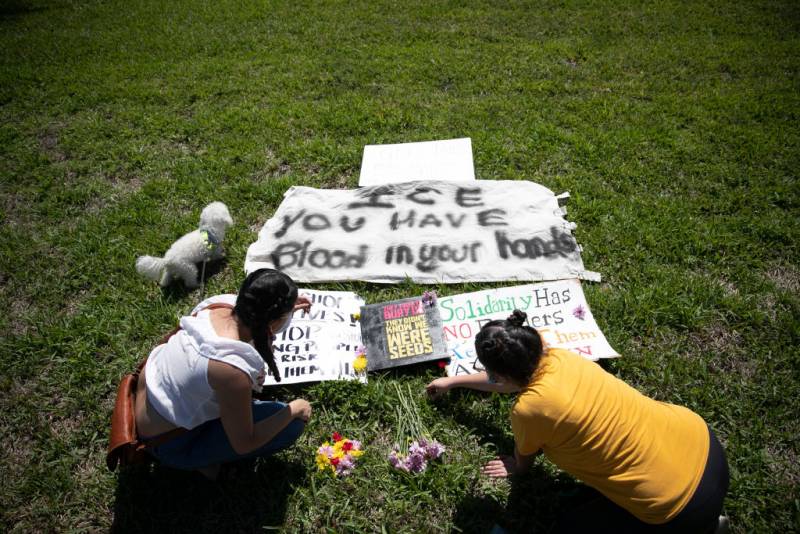In the statement, ICE reported that 181 immigrants held in detention at the Otay Mesa Detention Center have been diagnosed with COVID-19 since April 1, with 140 of them currently in ICE custody. As of Thursday, 753 detainees nationwide have been confirmed to have the virus, out of 1528 tested.
The Otay Mesa facility stopped accepting new detainees on April 2, according to the ICE statement, and the total number of people held there has been reduced — from 996 on Feb. 29, to 629 as of May 5.
Original story:
A 57-year-old man held at an immigration detention facility in San Diego has died of COVID-19, immigrant advocates reported Wednesday. It is the first known coronavirus death among the roughly 30,000 people detained by U.S. Immigration and Customs Enforcement.
ICE officials would not confirm the death, saying the agency’s policy is to announce detainee deaths within 48 hours.
The man, identified as Carlos Ernesto Escobar Mejia by The San Diego Union-Tribune, was originally from El Salvador and had been held at the Otay Mesa Detention Center for about four months. He had spent his last days in a hospital, where he died, according to Dulce Garcia, executive director of the advocacy group Border Angels.
“ICE set up a death trap and it was just a matter of time,” said Garcia, an attorney who represents immigrants detained at Otay Mesa. “We’ve known for weeks that they don’t have enough testing for everyone in there, and when you do test positive they put you into these cohorts with 100 other people. They should be releasing everyone.”
Another San Diego immigration lawyer said a distraught client of his at Otay Mesa called him to say that guards had come to her pod Wednesday morning and told detainees that a man housed in another pod had died of COVID-19.
“I can feel in her voice how scared she is,” attorney Ian Seruelo said of his client, a Mexican asylum-seeker who is trying to get released from custody. “There is this atmosphere inside where everyone is scared of what’s going to happen. They’re living on the edge. They don’t know if they could be the next one to be infected.”
The death comes one week after a federal judge in San Diego ordered ICE to immediately consider dozens of medically vulnerable people, including those 60 or older, for release from detention at Otay Mesa. As of Monday, just two individuals had been released.

